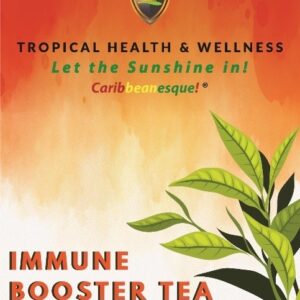
Sample Page
ANAEMIA TEA – for boosting iron levels
£15.63 – £41.31
About Anaemia
More than three million people have anaemia in the United Kingdom, which confirms this is a very common condition. However, there are many different types of anaemia, and they are classified depending on their causes and the exact effect they have on blood composition. Anaemia is a condition where your body is low in red blood cells. Healthy read blood cells have high levels of haemoglobin, which is the substance that gives colour to your blood cells and transports oxygen throughout your body. When this level is low it can lead to anaemia which causes you to feel fatigue. Whilst there are different kinds of anaemia, the most common one is caused by a lack of iron. Iron is not made in the blood, but it must be absorbed from the foods that we eat. Without enough iron the production of haemoglobin is greatly reduced.
Types of Anaemia
Anaemia can be genetic (like sickle cell, thalassemia, or pernicious anaemia), caused by poor absorption issues (such as where surgery or certain medications prevent the formation and storage of vitamins B12 and folate). On one hand, anaemia can be triggered by nutritional deficiencies; such as a lack of vitamins and minerals in the diet, especially iron and vitamin B12). Vitamin B12, (also known as cobalamin), is found abundantly in meats, dairy, and eggs.
On the other hand, A lack of iron in the diet is a much more common cause of anaemia. Iron can be found in meat and liver, as well as nuts and dark-green leafy vegetables. Iron is a mineral that is vital for the production of haemoglobin (a protein stored in the red blood cells that transport oxygen around the body). In fact, there are many things, like lengthy dieting, a recent surgery, an accident, or chronically heavy menstrual periods that can affect haemoglobin production negatively. Low haemoglobin levels can lead to anaemia with the following symptoms:
Symptoms of Anaemia
- Constant fatigue
- Headaches
- Pallor
- Muscle weakness
- Depression in some cases
- Memory loss
But no individual is the same, so if you think you may have anaemia, it is important to see a doctor. We recommend consulting with a Healthcare professional before using our Iron Tea Formula, if you are pregnant or nursing.
How Does Tea Help Anaemia?
Some herbal tea ingredients provide good sources of nonheme iron, a type of plant-based dietary iron. Drinking these herbal teas are natural remedies to boost your iron levels and increase the iron levels in a safe way. Using herbs for anaemia treatment can work great as a complementary choice. So we’ve created this combined formula to improve your levels of haemoglobin and promote the absorption of iron in your recovery journey.
We have packed our Special Anaemia Tea Formulation with herbs that have been proven scientifically to boost your iron levels to get your iron levels up safely and naturally.
Ingredients in our Anaemia Tea Formula:
Yellow dock – this is one of the best sources of plant-based (or nonheme) iron. It also increases the absorption of iron-rich foods.
Sage – scientifically, this one is known to be effective in the treatment of exhaustion and iron deficiency anaemia
Thyme – contains a good source of iron that also helps prevent anaemia.
Nettle- mineral and iron-rich, it has long-standing benefit in treating anaemia
Dandelion – -contains a rich source of iron, proteins and vitamins, and has been used in maintaining haemoglobin levels, as it helps the body to absorb iron.
Parsley – contains an impressive concentration of iron and helps to improve the red blood count
Sea Moss – contains 92 out of the 102 minerals our bodies need for healthy red blood cells – just 1 oz (28.3g) of sea moss contains 14% of the daily value of iron
Black Seeds are packed with iron, zinc, copper, selenium and vitamin B6, B7 and E, and are proven to improve your haemoglobin levels and promote the absorption of iron.
How to Drink our special formulation for Anaemia
It is important to drink tea regularly in order to see the best results. Here are some tips on how to drink our Special Formula teas for Anaemia:
- Choose our high-quality tea: This is important because lower-quality teas are less effective.
- Steep the tea for the recommended time: This will ensure that you are getting the most benefits from the tea.
HOW TO MAKE
Simply put a tea bag into a glass or cup, pour boiling water over it, and let it steep for 5-minutes. Add a slice of lemon. Drink one to three cups a day.
The Bottom Line
If you suffer from Anaemia, it’s important to talk to your doctor about the best treatment options for you. But having looked at the health benefits above, incorporating our tea into your diet may help to ease your symptoms and promote healing. With regular consumption, you should notice a significant improvement in your condition.
Other factors for supporting anaemic conditions:
- Meat proteins and foods rich in vitamin C can improve your body’s ability to absorb nonheme iron.
- To maximize your body’s absorption of herbal tea’s nonheme iron, add lemon juice to your tea or have it alongside another citrus fruit, like an orange or grapefruit.
- You may benefit from also taking our Anaemia – Blood Builder Tonic – a herbal iron tonic, made with iron- rich herbs, spices and dried fruit; formulated to increase absorption of iron.
Additional Information
| Anemia tea packages | 57g / 2 Oz, 113g / 4 Oz, 227g / 8 Oz |
|---|







Reviews
There are no reviews yet.